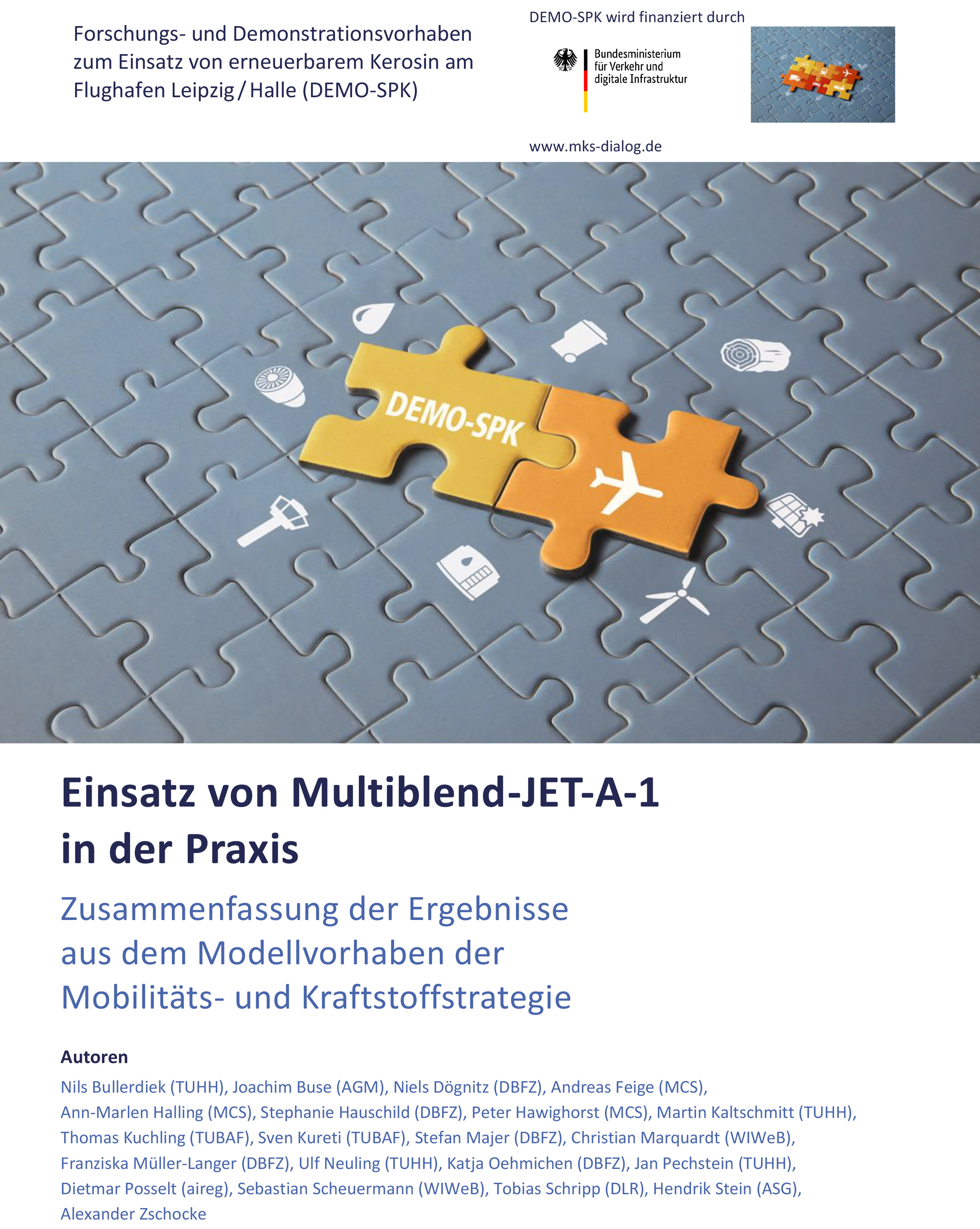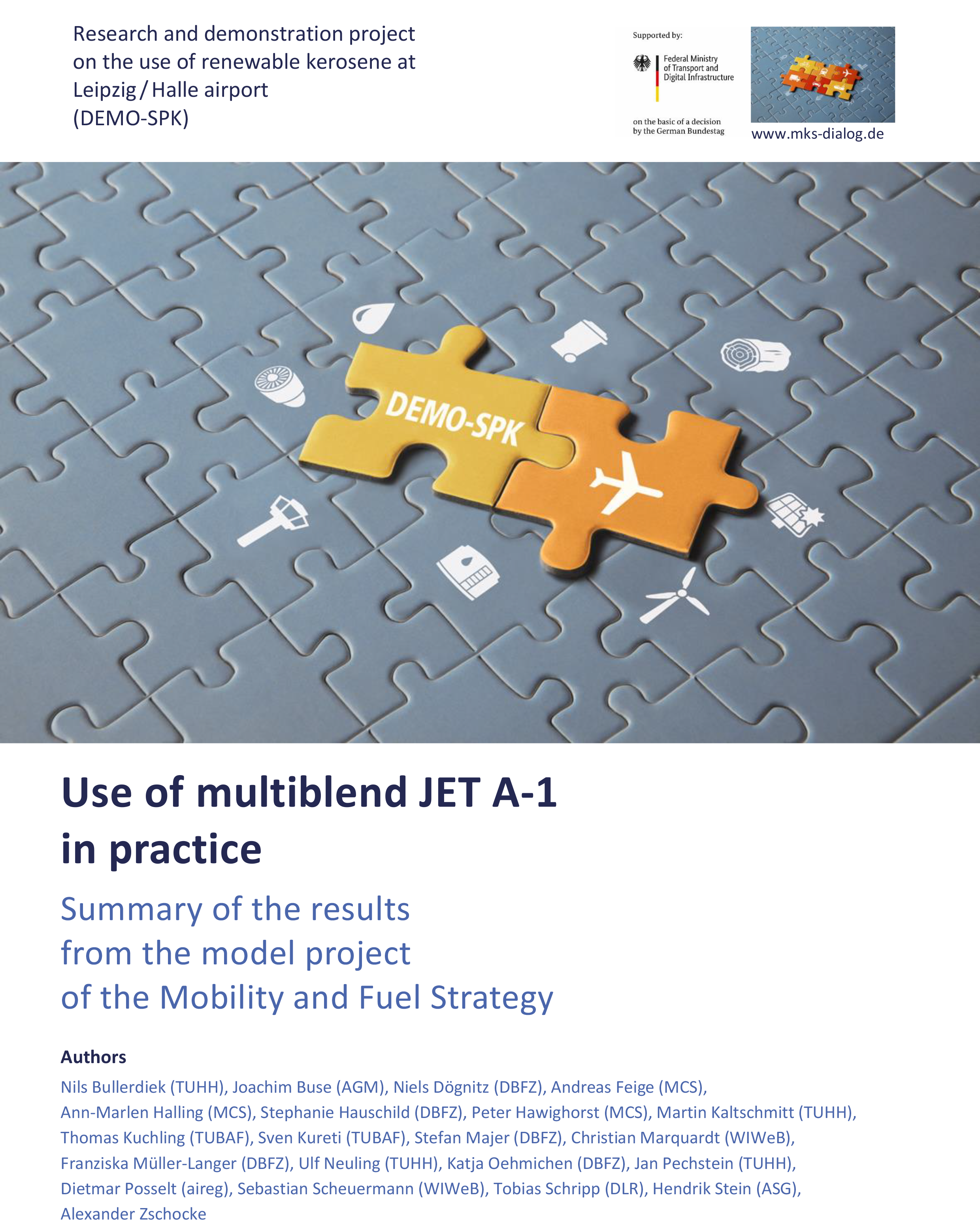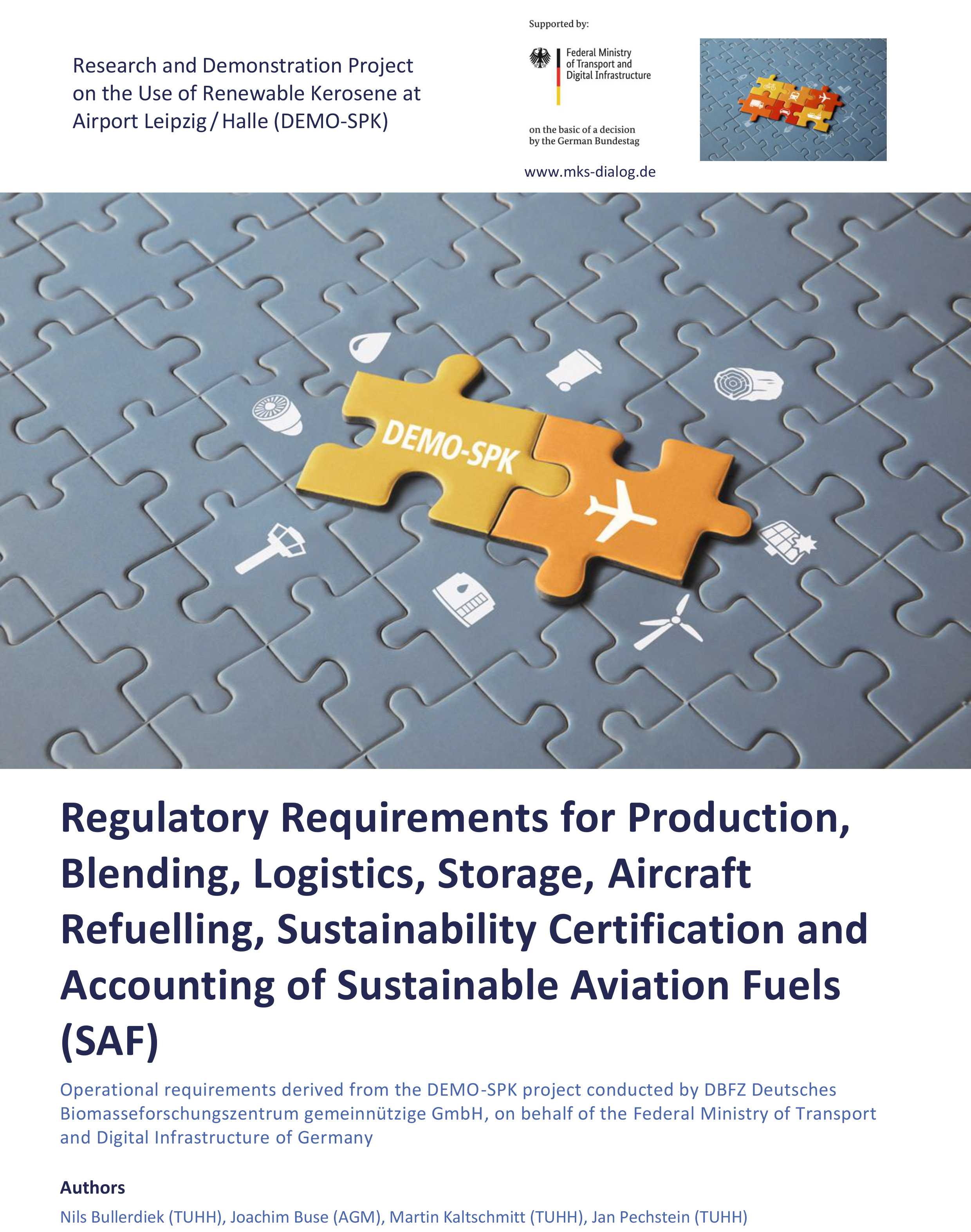Renewable kerosene: the climate-friendly alternative to fossil jet fuel
Results of the world’s first project on the use of kerosene fuel blends
Multiblend JET A-1 results in a significant reduction in both general and local greenhouse gas emissions. The primary objective of the DEMO-SPK pilot project, initiated by the German Federal Ministry of Transport and Digital Infrastructure, was to investigate and verify the behaviour of renewable kerosene mixed with fossil JET A-1 under realistic conditions in the supply infrastructure of a major airport. This involved demonstrating the successful use of Multiblend JET A-1 across the general fuel supply infrastructure, from procurement to refuelling the aircraft for the first time for international use.
Environmentally and climate-friendly, renewable aviation fuels are essential for reducing aviation emissions. A number of manufacturing processes have already been approved for use. In the medium term, German airports are expected to be supplied with JET-A1 containing renewable fuels of various types in different proportions. In addition to analyses of the kerosene properties, emission measurements, life cycle analyses and work on practicable sustainability documentation and crediting procedures in emissions trading were carried out. More than 20 international partners have made this unique project possible.
The results are promising: it has been shown that the supply chain of Multiblend JET A-1 is technically feasible and can be used without deviation from normal operation. It was also verified that the use of Multiblend JET A-1 can reduce particle emissions on the ground by around 30 to 60 percent and CO2 equivalent emissions by around 35 percent, compared to pure fossil JET A-1. The project also offers a number of solutions and recommendations for practical use.
About the DEMO-SPK project
The research and demonstration project on the use of renewable kerosene at Leipzig/Halle Airport (DEMO-SPK for short) involved the collaboration of more than 20 international partners from industry and science. It was initiated as a model project of the Mobility and Fuel Strategy (MKS) and financed by the Federal Ministry of Transport and Digital Infrastructure (BMVI). The project was coordinated by DBFZ Deutsches Biomasseforschungszentrum gemeinnützige GmbH; the partners included Adeptus Green Management GmbH, aireg e. V., ASG Analytik-Service GmbH, BP Europa SE, DHL / European Air Transport Leipzig GmbH, Dettmer Rail GmbH, Deutsches Zentrum für Luft- und Raumfahrt (DLR) e. V., GEVO Inc., IFOK GmbH, knoell Germany GmbH, Meo Carbon Solutions GmbH, Neste Corporation, Petro Lab GmbH, Sunfire GmbH, Tanquid GmbH & Co. KG, TOTAL S.A., Technische Universität Bergakademie Freiberg, Technische Universität Hamburg, VTG AG, Wehrwissenschaftliches Institut für Werk- und Betriebsstoffe (WIWeB) and World Energy LLC.



